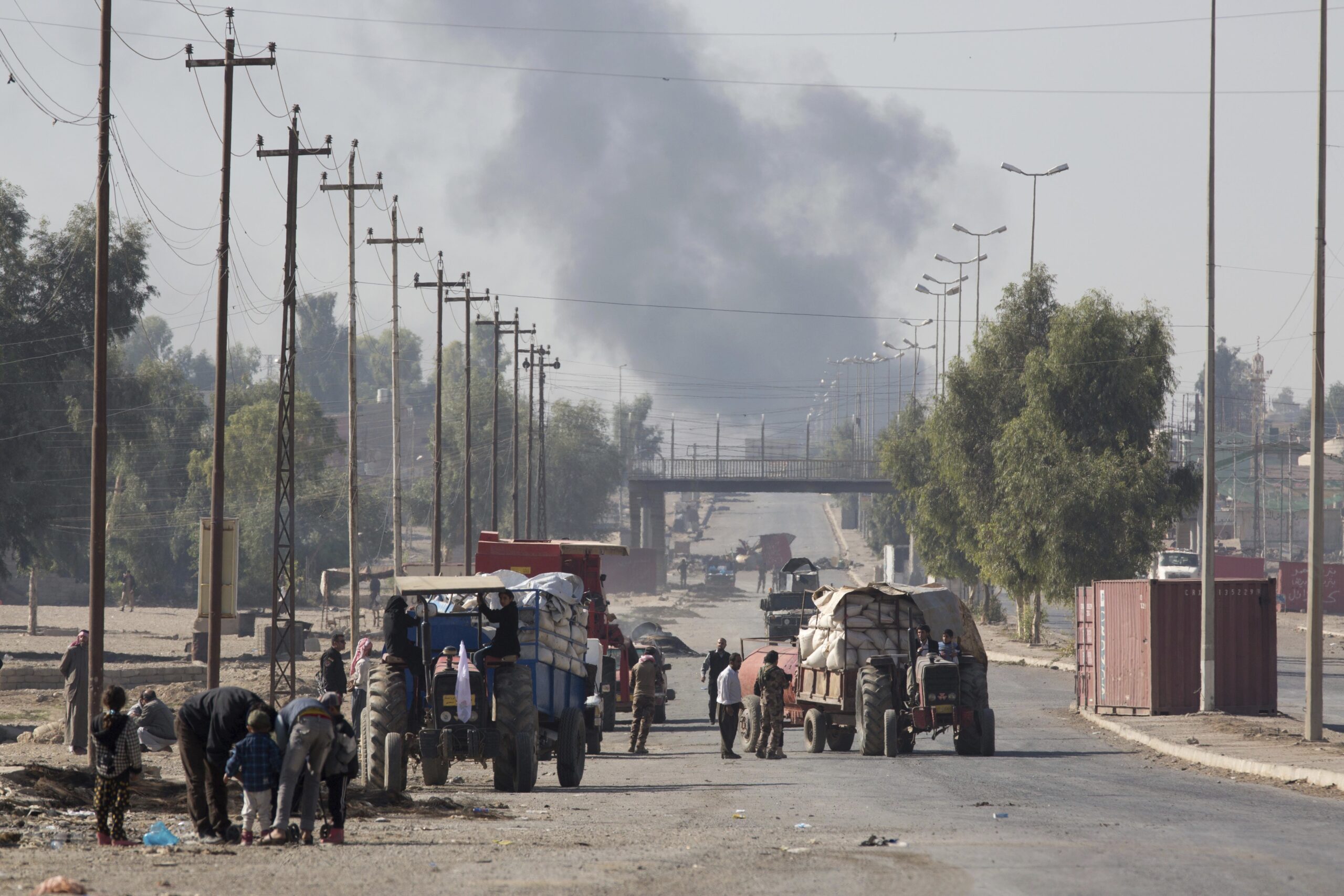President Trump’s infamous Muslim ban has proved to be a potent recruitment tool for ISIS.
Rukmini Callimachi, a correspondent for The New York Times who specializes in al-Qaeda and ISIS, explained this in a series of tweets on Wednesday.
1 For the last 2 days, I’ve been reporting from eastern Mosul, now under Iraqi control. It’s amazing to finally be able to walk freely here pic.twitter.com/4J2xoXmwzY
— Rukmini Callimachi (@rcallimachi) February 8, 2017
2. The front line is now demarcated by the Tigris River. We are waiting for the Iraqi army to make their push into Western Mosul: pic.twitter.com/kUTSf15WVQ
— Rukmini Callimachi (@rcallimachi) February 8, 2017
3. I reported here in Nov/Dec of last year. Guess what’s different on this trip? Everywhere I go, Iraqis want to ask about the visa ban — Rukmini Callimachi (@rcallimachi) February 8, 2017
4. I’ve been asked about it by officers of the elite CTS division who speak fluent English and who work with US special forces. — Rukmini Callimachi (@rcallimachi) February 8, 2017
5. On the banks of the Tigris, I was quizzed on the ban by Mohammed, with Iraq’s Federal Police, himself a former interpreter for US forces
— Rukmini Callimachi (@rcallimachi) February 8, 2017
6. But here’s the best part. Guess who else is talking about it? ISIS is, according to a resident of W. Mosul my translator reached by cell
— Rukmini Callimachi (@rcallimachi) February 8, 2017
7. My translator reached the resident at 2 am. ISIS is forbidding people under their rule to have phones. Resident hid his. Calls at night — Rukmini Callimachi (@rcallimachi) February 8, 2017
8. The resident said ISIS has been openly celebrating the ban. They’ve even coined a phrase for it: الحظر المبارك Or “The Blessed Ban”
— Rukmini Callimachi (@rcallimachi) February 8, 2017
9. Why are they calling it a “Blessed Ban?” Because ISIS sees this as *their* doing. They succeeded in scaring the daylight out of America
— Rukmini Callimachi (@rcallimachi) February 8, 2017
10. ISIS, according to this resident of Western Mosul, thinks their terror tactic worked. They frightened the most powerful man in the world
— Rukmini Callimachi (@rcallimachi) February 8, 2017
11. And they are celebrating, he says, because it proves to their followers that America really does “hate” Islam.
— Rukmini Callimachi (@rcallimachi) February 8, 2017
12. The term they’re using – “a blessed ban” – reminds me of what Abu Musab al-Zarqawi, spiritual founder of ISIS said about the 03 invasion
— Rukmini Callimachi (@rcallimachi) February 8, 2017
13. Zarqawi, founder of al-Qaeda in Iraq, which became ISIS, called the 2003 invasion of Iraq “the Blessed Invasion” https://t.co/VNT2h9YJ2v
— Rukmini Callimachi (@rcallimachi) February 8, 2017
14. Among ppl affected by the ban is my own translator. He was scheduled to have his 2nd intv for a visa for ppl who worked with the US army
— Rukmini Callimachi (@rcallimachi) February 8, 2017
15. When you’re standing in the liberated streets of (eastern) Mosul, it’s clear who this ban is hurting: The people who helped us.
— Rukmini Callimachi (@rcallimachi) February 8, 2017
This isn’t the first time that Middle Eastern reporters and observers have noticed how the Muslim ban plays right into ISIS’s hands.
“ISIS (and al-Qaeda before it) has long focused its propaganda on a putative laundry list of crimes the US and its Western allies have supposedly committed against Muslims around the world,” writes Jennifer Williams in Vox. “It seeks to convince Muslims living in the West that their governments are against them, and that they must therefore take up arms and defend Islam against these attempts to destroy it.”
As one example, Williams cites an issue of ISIS’s propaganda magazine which predicts that “Muslims in the crusader countries [i.e., the West] will find themselves driven to abandon their homes . . . as the crusaders increase persecution against Muslims living in Western lands.”


